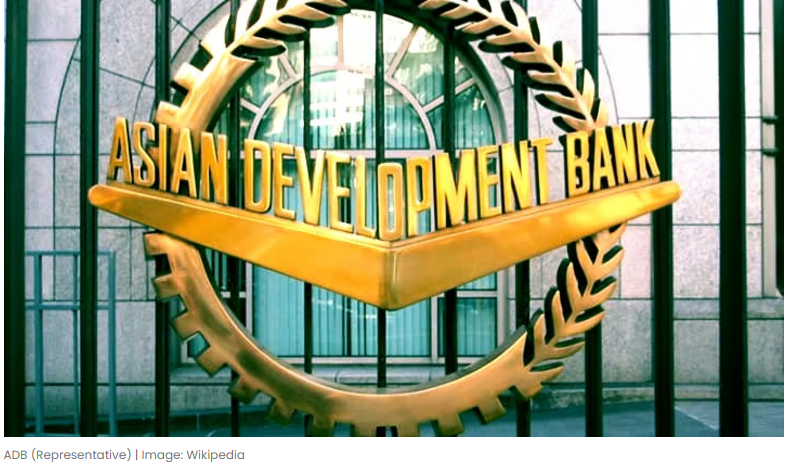The Asian Development Bank (ADB) has approved a landmark loan of $500 million to help the Philippines accelerate its climate change mitigation and adaptation efforts. This initiative, part of the Philippines’ Climate Change Action Program (CCAP) Subprogram 2, will support the country’s commitment to the Paris Agreement by enhancing climate resilience and promoting sustainable, low-carbon development across key sectors such as agriculture, energy, and transportation.
A Timely Investment in Climate Resilience
The Philippines, recognized as one of the world’s most vulnerable countries to the effects of climate change, faces escalating risks from extreme weather events, including powerful typhoons and flooding. In fact, according to the World Risk Index 2022–2024, the Philippines ranks as the country with the highest disaster risk globally, largely due to its geographical location along the Pacific Typhoon Belt and Ring of Fire. The country’s exposure to these threats is compounded by its socio-economic conditions, making the task of building resilience even more urgent.
This $500 million loan is a strategic investment by the ADB to bolster the Philippines’ ability to address these challenges. The program aims to mobilize $10 billion in climate finance, which will support the country’s efforts to meet its Nationally Determined Contributions (NDCs) and National Adaptation Plan (NAP). By addressing the impacts of climate change across various sectors, the program helps reduce vulnerability while fostering a transition to a low-carbon economy.
Tackling the Climate Crisis Through Key Reforms
The Philippine government has already recognized the importance of climate adaptation and mitigation, with the CCAP Subprogram 2 focusing on systemic reforms in multiple sectors. The reforms are designed to create climate-resilient pathways in agriculture, energy, and transportation, all of which are critical to ensuring the country’s long-term sustainable development.
- Agriculture: The country’s agricultural sector is heavily affected by shifting weather patterns, frequent floods, and droughts. The CCAP reforms aim to introduce climate-smart agriculture techniques that can help farmers adapt to changing conditions. This includes improving access to climate-resilient crop varieties and strengthening early warning systems to help communities prepare for extreme weather events.
- Energy: The energy sector plays a crucial role in reducing emissions and enhancing resilience. The loan will support renewable energy initiatives that decrease dependence on fossil fuels, promote energy efficiency, and encourage green investments in technologies like solar, wind, and hydroelectric power. Moreover, the program seeks to enhance the infrastructure needed to support clean energy transitions, enabling the Philippines to meet its climate goals while addressing growing energy demands.
- Transportation: A shift toward sustainable transportation is another key component of the reforms. The focus will be on reducing emissions from public and private transport, improving public transit systems, and developing green mobility solutions such as electric vehicles (EVs). These changes will help not only reduce greenhouse gas emissions but also improve air quality and urban livability.
Strengthening Climate Finance Mobilization
The ADB loan is part of a broader effort to mobilize climate finance for the Philippines. To support the country’s transition to a green economy, the loan will help catalyze private sector investment in renewable energy and other green technologies. The Philippines has great potential for renewable energy development, especially in solar power, wind energy, and geothermal energy—sectors that can attract private investments with the right policies in place.
The reforms supported by the loan also aim to establish policies and mechanisms that will make it easier to channel investments into climate-resilient infrastructure and nature-based solutions, such as reforestation projects and the protection of coastal ecosystems. Through these efforts, the program seeks to build the Philippines’ capacity to not only adapt to climate change but also to become a regional leader in sustainable development.
Addressing the Economic Risks of Climate Change
One of the driving factors behind the ADB’s support for the Philippines’ climate programs is the significant economic threat posed by climate change. According to estimates, the Philippines could suffer economic damages amounting to as much as 7.6% of its GDP by 2030 due to climate-related disasters. These potential losses highlight the urgent need for transformative policies and investments that not only mitigate risks but also support long-term economic stability.
As Pavit Ramachandran, the ADB’s Philippines Country Director, emphasized: “Climate change is exacerbating all major development challenges in the Philippines. The country’s high vulnerability impacts its economic momentum and outlook.” The loan will play a critical role in averting these economic losses by strengthening the country’s resilience, fostering green investments, and promoting a transition to a more sustainable economic model.
Integration with ADB’s Broader Strategy
The approval of this loan is also an important part of the Asian Development Bank’s broader strategy to support climate action across Asia and the Pacific. In its Country Partnership Strategy for 2024–2029, the ADB has outlined its commitment to advancing sustainable development in the Philippines through climate finance mobilization and the promotion of green infrastructure. By providing financial support for the Philippines’ climate goals, the ADB aims to facilitate the country’s transition to a low-carbon economy while addressing urgent climate risks.
This partnership between the Philippines and the ADB reflects the increasing importance of international collaboration in tackling the global climate crisis. The ADB’s financial and technical support complements the Philippines’ national efforts, which also include strengthening disaster risk reduction systems and integrating climate adaptation into national development planning.
Conclusion: A Step Toward a Sustainable Future
With this $500 million loan, the Asian Development Bank is helping to chart a path toward a climate-resilient Philippines. The reform initiatives supported by the loan will be crucial in ensuring that the country can meet its climate change commitments and continue to develop in a sustainable, low-carbon manner. As climate change accelerates, this investment will help shield the Philippines from the worst impacts of extreme weather while also promoting a green, sustainable economy that benefits future generations.
The ADB’s support also signals the importance of global collaboration in addressing the climate emergency, with international financial institutions playing a critical role in helping vulnerable nations adapt to and mitigate climate risks. Through such partnerships, the Philippines and other nations in the Asia-Pacific region can build more resilient economies and contribute to global efforts to combat climate change.
References:
- Asian Development Bank (ADB) – Country Partnership Strategy 2024–2029
- Philippines Nationally Determined Contributions (NDC) – Paris Agreement Commitments
- World Risk Index 2022–2024 – Global Disaster Risk Assessment
- UN Climate Change – Climate Finance and Sustainable Development

